Written by Andrea Ortega
Spanish version is available here
Sonia was born in Sasardi Muladub, an island in Tubualá, a township of the Guna Yala region (also known as Kuna Yala or Dulenega) on the east coast of the Panamanian Caribbean.
Campfires, stories and songs are some of Sonia’s most treasured childhood memories. She and her four sisters would sit around the fire and listen to her father explain the indigenous worldview. In each story, a lesson was repeated and reinforced: no species is superior to another. Nature and its resources must be respected since each living being fulfills a specific role and helps preserve life.
Sonia also remembers the lack of access to basic services from her childhood; her region lacked drinking water, medical centers, and secondary schools. Her older sisters could not access Western education. Religious missionaries ran the only health care facility in her community. And water was drawn from the river. Sonia remembers waking up with the image of her mother and other tribal women sailing at four in the morning to bring water in totumas before the sun rose.
Sonia’s parents had big dreams for her and when she was only eight years old, they sent her to study in another city with secondary schools. But, separated from her community, she didn’t last long and kept returning. Yet, she continued to study until she became a nurse, a dream inspired by her grandfather, a traditional doctor, and the nuns who cared for the sick in her community.
Water and indigenous women: vital resources for development
Seeking to preserve Guna’s history and worldview, Sonia has dedicated herself to facilitating the integration of development projects in Panama’s indigenous regions and empowering the women of her community.
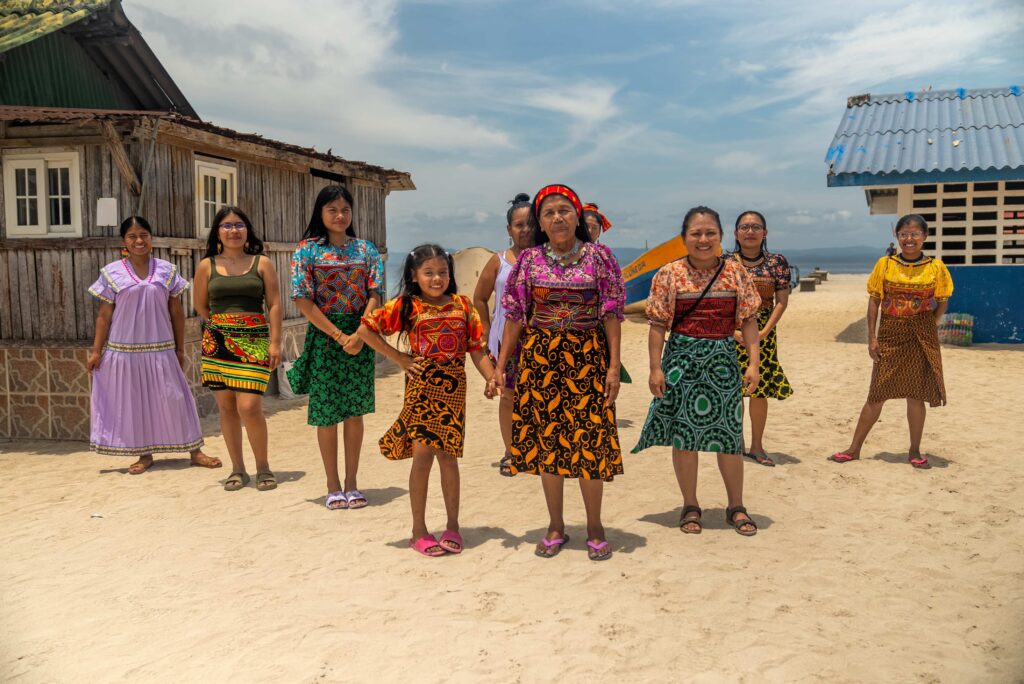
In addition to her childhood dream, Sonia began to heal her community on other fronts. When she was very young, she began working as the Gunas Women’s Regional Coordinator. Later, she joined the National Coordinator of Indigenous Women of Panama (CONAMUIP), where she met and shared with women from other indigenous communities. They focused on improving living conditions, while preserving their cultural identity.
“This space has served me a lot for empowerment, leadership, and self-esteem. But also, as a collective, because one has a broader view of the indigenous community and that is how we can contribute. That has motivated me to continue in this space,” she explains.
In a short time, Sonia became president, a position she has held for over 10 years, where she worked with various organizations and participated in forums and workshops. Thus, she was invited to work in a leadership program for women: the “School of Leaders“, launched by the Spanish Cooperation, related to a water and sanitation project. For Sonia it was a challenge, but also an opportunity to integrate the intercultural vision of her community and reduce existing biases.
“It’s not that we don’t want development, as we are sometimes labeled. We want it, but with respect. That is why it is important to listen to women […]. We want change without violence or discrimination. When officials arrive and begin work, they need to get involved and feel part of the community, to understand us,” she says.
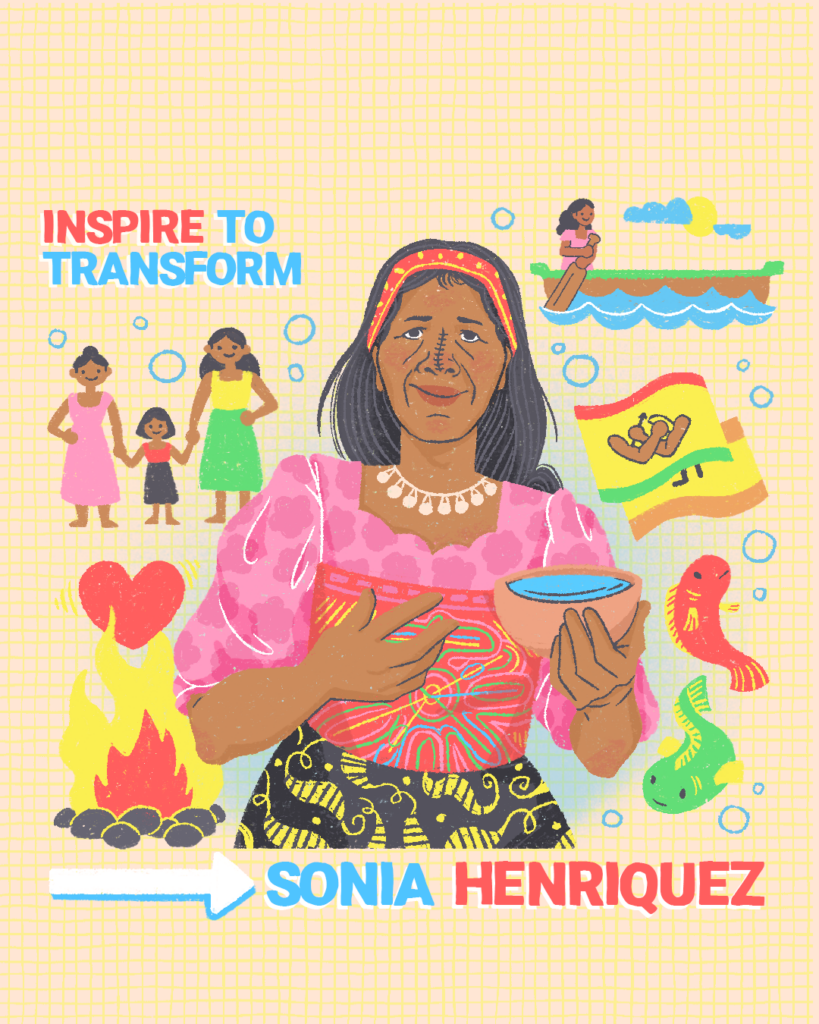
Sonia has facilitated multiple female leadership workshops for the Guna and Ngäbe communities to integrate and publicize the importance of the indigenous perspective when carrying out sustainable development projects. “When I speak with community boards, I explain to them that it is not that they are going to speak to us from the outside or organize us. Our organization comes from centuries, from our grandmothers and grandfathers. We have an organization that works from the community and the unit, and in water, a lot of community work is needed. That’s what I’m passionate about. If we talk about water, take it from our culture, including the worldview and history,” she explains.
After years of work, Sonia warns that it is time to leave the presidency to make way for new leadership. However, she maintains high expectations for the development of indigenous regions. “Our culture is dynamic. We are very reluctant to change, but it must be done for the benefit of our communities, considering our vision and reality, without losing interculturality. We need development, without losing our roots. Because the moment we lose our history, we lose everything, and then what do we leave our young people? 20, 25 or 30 years can go by, and you still have to feel that the communities and indigenous peoples exist,” she says.
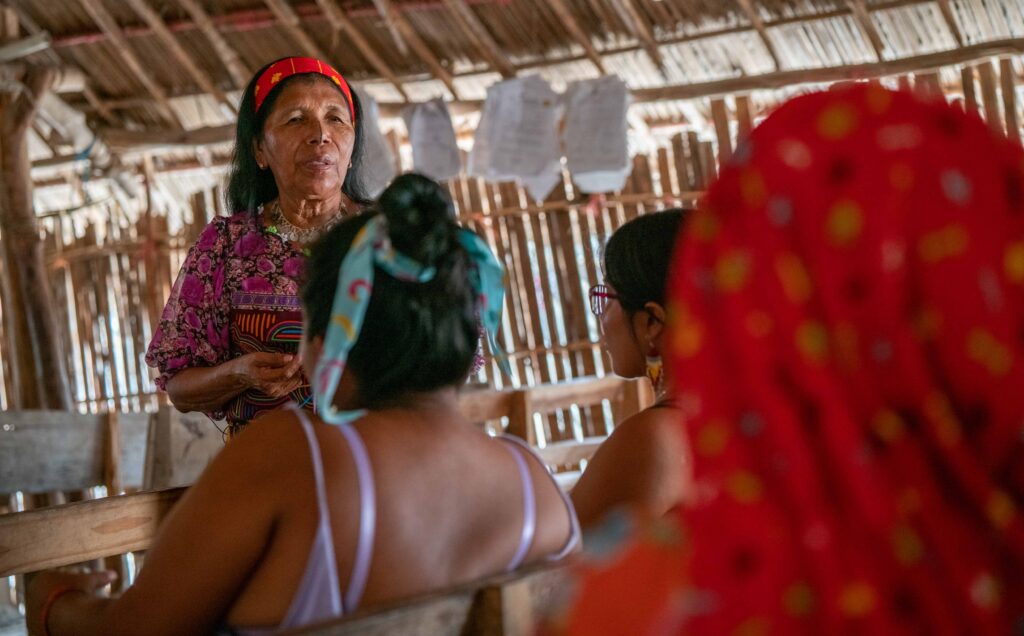
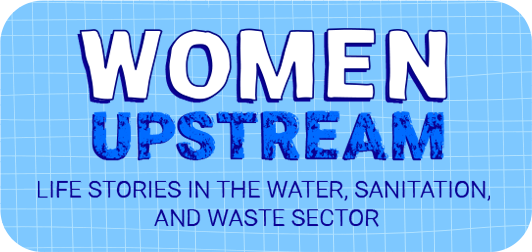
Every month we will upload a new profile of “Women Upstream”. Follow each story to learn more about the lives of women who have worked for their community with tenacity, perseverance and gaining leadership in spaces that used to be only for men.
The IDB together with the AECID have the common objective of providing quality water and sanitation services in rural areas of the region. Learn more about the projects carried out so far with the Cooperation Fund for Water and Sanitation (FCAS) in this publication.
To learn more about “Women Upstream” subscribe to our blog here.
Upstream Women’s Team:
Coordination: Anamaría Núñez, María Augusta Olmedo and Leticia Ortega
IDB Gender Specialists: Naiara Martínez
Content: Andrea Ortega Carreño and Paul Constance
Illustration: Verónica Alvarado and Carolina Curbelo
Audiovisual Production: Adriana Loeff

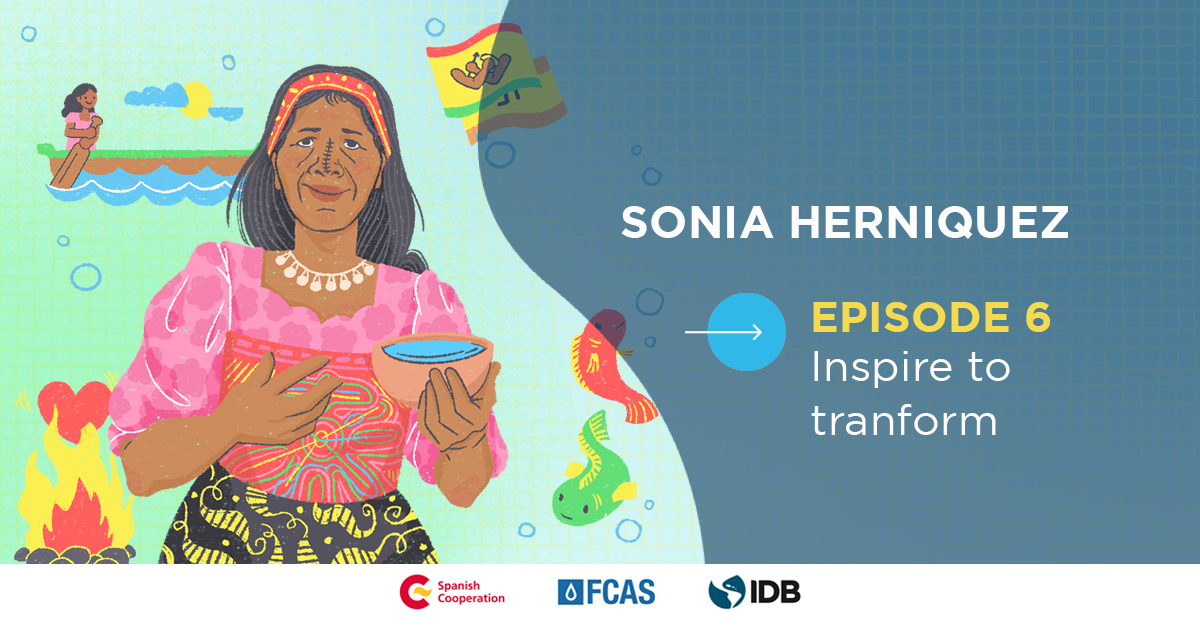
Leave a Reply